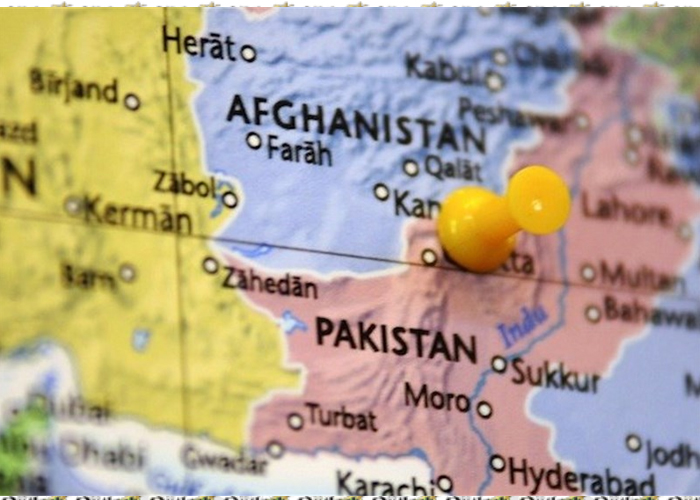Discrimination on the basis of gender and violence against women are widespread not only in Afghanistan but also around the region. Women are treated as pariahs in tribal belts, mainly in Afghanistan and Pakistan. Their social and political role is denied and they are restricted within the four walls in tribal areas. The tribal code of conduct regarding women and the prominent role of tribal council, formed by tribal elders, transcend both religious tenets and national laws.
In tribal belts, where patriarchal system holds strong sway, people claim to practice on religious tenets through being strict towards women. For example, the Taliban were the product of social and political backgrounds prevailed in villages. They exercised highly strict rule and dogmatic mindsets in terms of women’s rights and liberties. Women lacked very basic rights during the Taliban’s regime in Afghanistan (1996 – 2001). They were not allowed to reveal their face in public or go out without male chaperone. Wearing burqa (a head-to-toe covering) was imperative for women. In brief, despite the Taliban’s claim, their practices was in conflict with religious tenets and Islamic values. They imposed their own warped minds on religion.
Currently, Pashtunwalai (a tribal code of conduct) prevails among Pashtun tribes both in Afghanistan and Pakistan. Based on this code, the tribal councils and elders are allowed to decide on family issues – be it against law or religion. Their decision is held more important than that of religious sharia or Islamic Sunnah. Women are the main victims of Pashtunwalai since it is strict regarding their rights and freedoms.
I remember vividly when BBC reported few years back that a girl fell victim to a gang rape in a tribal belt in Pakistan as a result of a decree issued by tribal elders since her brother raped a teenage girl in the same village. The criminal’s sister, was raped by a mob before the eyes of her family and people in southern Panjab province.
The fact shows that this is not a spontaneous decision but the deep-seated code rules tribal belts for many generations and harsh mindsets and practices regarding women. Torturing and dishonoring women in desert courts take place every once in a while in both Afghanistan and Pakistan. For example, two incidents of the same nature happened in these two countries in past few years. A 27-year-old woman Farkhunda was lynched by angry mob in Kabul on 19 March 2015 after allegedly arguing with a talisman-writer who falsely accused her of burning the Koran, the Sacred Book of Muslims. On 13 April 2017, Mashal Khan, a student at the Abdul Wali Khan University Mardan in Pakistan was killed by a mob over fake allegations of posting allegations blasphemous content online.
Little wonder, the deep-seated radical tradition, parochial mindset, and lack of tolerance lead to harsh and immoral practices in tribal areas. Their exercises, which are against the law, religion and moral values, suggest that they still live in the state of nature – where people decided out of revenge. In the state of nature, when a person belonging to a certain tribe was hurt or killed, the entire tribe sought to hurt or kill any members of the criminal’s family. Nonetheless, it should be noted that in civil society, crime is a personal act and no one is supposed to fall victim for the crime of another person – no matter be it their brother, sister, parents, etc. Secondly, “the accused shall be innocent until proven guilty by the order of an authoritative court” and neither tribal council nor people have the legal authority to decide who the criminal is or simply conduct a desert court.
Furthermore, men and women are equal in the view of modern men and international law and “all human beings are born free and equal in dignity and rights”. It is stated in the second article of the Universal Declaration of Human Rights (UDHR) as, “Everyone is entitled to all the rights and freedoms set forth in this Declaration, without distinction of any kind, such as race, color, sex, language, religion, political or other opinion, national or social origin, property, birth or other status….”
Such illegal practices and sub-cultures in tribal belts reflect two issues: First, the locals in those areas lack basic knowledge about religion and women bear the brunt of violence on the basis of this fact. Second, the government is not able to implement the law. It is most likely that if those, who were involved in such activities, were prosecuted seriously in the past, they would not continue conducting desert courts. It is still not too late for governments in Afghanistan and Pakistan to minimize violence against women through enforcing law and conducting public awareness regarding women’s rights from the eye of law.
Home » Opinion » Tribal Code of Conduct Holds Sway in Afghanistan, Pakistan
Tribal Code of Conduct Holds Sway in Afghanistan, Pakistan
| Hujjatullah Zia

